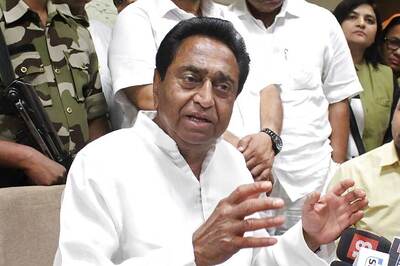
views
BANGALORE: The recent murder of Visakhapatnam jeweller Manoj Kumar Gandhi was a grim reminder of the need for passenger safety in general (irrespective of one’s gender), driver’s safety in many cases and of course, the vulnerability of a large female population in the city who work in night shifts.Although some of the prominent MNCs have Global Positioning System (GPS) in place which track the employee transportation, there is a large fleet of cabs in the unorganised sector in the city which don’t have any passenger safety measures, the reason being the additional cost incurred on a GPS system. GPS is a space-based satellite navigation system that provides location and uses a constellation of satellites for the same purpose.RK Holla, General Secretary of the Tourist Taxi Owners’ Association says, “There are more than 40,000 taxis, more than 10,000 private buses (employee transport) and more than 10,000 maxi cabs (mini buses) within Bangalore city. But, there are more than 10,000 cabs in the unorganised sector itself.” By unorganised sector, he refers to the private cab owners who own more than two cars for their personal use, but also use them as taxis for hire. They may not own a license, have themselves registered or follow the laws which one needs to comply with if one runs a travel agency. Passenger safety is not on the list of their priorities.Syed, a cab driver, who worked with a leading company offering radio cab service and now works with a small agency says, “Not that we don’t care about our passenger’s safety. But, these big companies can afford to invest in GPS devices and many MNCs have provided loans to drivers to invest on the same. How do you expect others to follow suit, considering their cost? When I used to work with the company, the GPS device in my cab was a very expensive one costing more than `30,000, other than the monthly charges.” This is not to say that GPS devices are all expensive. The cost differs depending on the features available. A basic model can cost as low as `6000 with monthly maintenance charges of about `400. The latest one has SMS alert, where you can notify the nearest police station in case you are in trouble. Holla feels that GPS is usually associated with passenger safety and we need to change that. He adds, “The driver is no different from the passsenger. Even he has a family back home. We need to stress on their safety, which is again possible through GPS.” Though most vehicles from the bigger travel agencies are fitted with GPS that keeps track of the taxi, many smaller agencies — especially, the ones that operate around some hotels in Gandhinagar, still have not installed the system, as in some cases, for a GPS-based system, there is an average installation cost of `10,000 plus monthly charges of up to `700 per device. Some drivers feel a sense of mistrust, on part of their employers, attached to GPS. Rayees, another cab driver says, “I don’t want my vehicle to be under survellience all the time. We never had any safety issues in the past. I have never had a single passenger complaining in my 20 years of service.” Though cost seems to be a hindrance in most cases, some beg to differ. ASSOCHAM Co-chairman J Crasta says, “The cost is not more important than one’s safety. The drivers can always charge the customers slightly more to cover the cost of the GPS. This way the drivers will also be upright. A lot of local taxis belonging to the unorganised sector also have GPS facility, but that is for their own purpose such as monitoring fuel consumption through GPS tracking, not for customer’s safety.”ASSOCHAM has also suggested that the government should install global positioning system (GPS) in cabs for all sectors which employ female workers for night shifts. He adds, “There are so many women employed in the garment factories in night shifts, now who is accountable for their safety?” Other than the device you need a dedicated tracking system with excellent software support or state of the art GPS based web application to track your vehicle or fleets. Kumar, Joint Commissioner for Transport (Bangalore Urban & Rural) says, “GPS is an effective device. We had plans to instal it in state carriages few months ago to keep a check on unauthorised routes. But, later we dropped the plan when we realised that it could be easily misused by the drivers by attaching it to another vehicle. About installing it in all the cabs in the city it would be more practical if the prices are more reasonable. Besides, there is no provision for GPS in the Motor Act. Availibility of affordable GPS devices need to considered.”



















Comments
0 comment